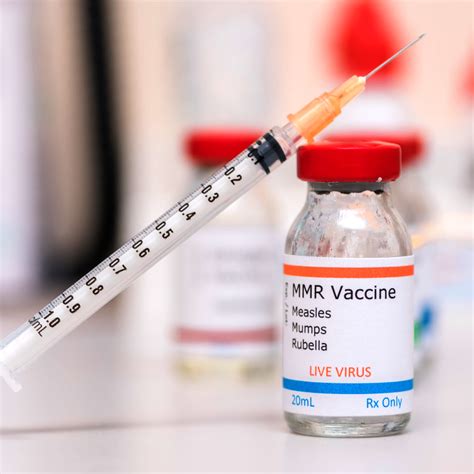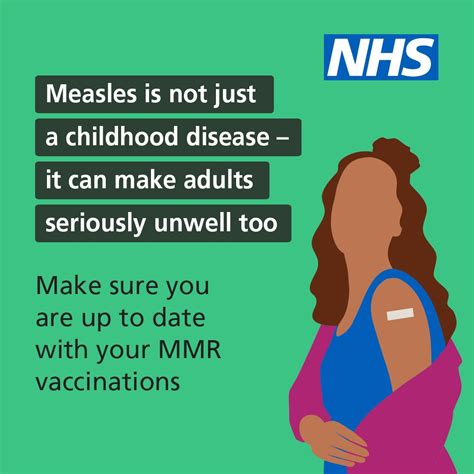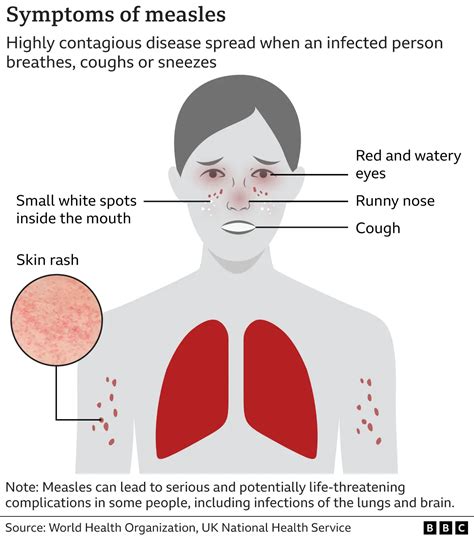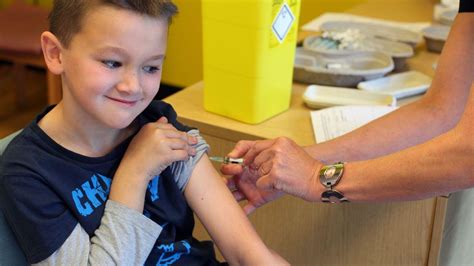Intro
The MMR jab, also known as the measles, mumps, and rubella vaccine, is a crucial immunization that protects individuals against three serious infectious diseases. Measles, mumps, and rubella can have severe consequences, especially for young children, pregnant women, and individuals with weakened immune systems. In this article, we will delve into the importance of the MMR jab, its recommended age for administration, and the benefits of vaccination.
The MMR vaccine has been widely used for decades and has significantly reduced the incidence of measles, mumps, and rubella worldwide. According to the World Health Organization (WHO), the MMR vaccine is estimated to have prevented over 20 million deaths between 2000 and 2018. The vaccine is typically administered in two doses, with the first dose given to children around 12 to 15 months of age and the second dose at 4 to 6 years of age.
The MMR jab is a live, attenuated vaccine, which means it contains weakened forms of the measles, mumps, and rubella viruses. When administered, the vaccine stimulates the immune system to produce antibodies that can recognize and fight the viruses, providing long-term protection against infection. The vaccine is highly effective, with a success rate of over 95% after two doses.
Importance of MMR Jab

Benefits of MMR Vaccination
The benefits of MMR vaccination are numerous. Not only does the vaccine protect individuals against measles, mumps, and rubella, but it also helps to prevent the spread of these diseases in the community. This is especially important for individuals who are unable to receive the vaccine due to medical reasons, such as those with weakened immune systems. By vaccinating a large proportion of the population, we can create herd immunity, which helps to protect vulnerable individuals who are unable to receive the vaccine.Recommended Age for MMR Jab

Special Considerations
There are certain individuals who may require special consideration when it comes to MMR vaccination. For example, pregnant women should not receive the MMR vaccine, as it is a live, attenuated vaccine and there is a theoretical risk of transmission of the vaccine viruses to the fetus. Individuals with weakened immune systems, such as those with HIV/AIDS or cancer, may also require special consideration, as they may be at increased risk of complications from the vaccine.MMR Jab Side Effects

Managing Side Effects
If an individual experiences side effects from the MMR jab, there are several steps that can be taken to manage them. For example, pain and swelling at the injection site can be managed with over-the-counter pain medications, such as acetaminophen or ibuprofen. Fever can be managed with rest, hydration, and over-the-counter medications. In rare cases, serious side effects may require medical attention.MMR Jab Effectiveness

Booster Shots
In some cases, individuals may require booster shots to maintain immunity against measles, mumps, and rubella. For example, individuals who received the MMR vaccine before 1989 may not have received the second dose, which is necessary for long-term protection. Additionally, individuals who are at increased risk of exposure to these diseases, such as healthcare workers or travelers, may require booster shots.MMR Jab and Autism

Debunking Myths
There are several myths surrounding the MMR jab that have been debunked by scientific evidence. For example, some individuals have claimed that the MMR vaccine contains mercury, which is toxic to the brain. However, the MMR vaccine has not contained mercury since 2001. Other myths, such as the claim that the MMR vaccine causes autism, have also been debunked by numerous scientific studies.Conclusion and Next Steps

To learn more about the MMR jab and its benefits, readers can consult with their healthcare provider or visit reputable websites, such as the CDC or the WHO. It is essential to stay informed and up-to-date on the latest information about vaccines and immunizations to make informed decisions about our health.
What is the MMR jab, and what does it protect against?
+The MMR jab is a vaccine that protects against measles, mumps, and rubella. It is a live, attenuated vaccine that stimulates the immune system to produce antibodies against these diseases.
Who should receive the MMR jab, and at what age?
+The MMR jab is recommended for children at 12 to 15 months of age and again at 4 to 6 years of age. Some individuals, such as healthcare workers or travelers, may require booster shots.
Is the MMR jab safe, and what are the potential side effects?
+The MMR jab is safe and effective, with a success rate of over 95% after two doses. Common side effects include pain, redness, and swelling at the injection site, as well as fever, headache, and fatigue. Serious side effects are rare, occurring in less than 1 in 1 million doses.
We invite readers to share their thoughts and experiences with the MMR jab in the comments section below. If you have any questions or concerns about the vaccine, please do not hesitate to ask. Let's work together to stay informed and protected against measles, mumps, and rubella.
